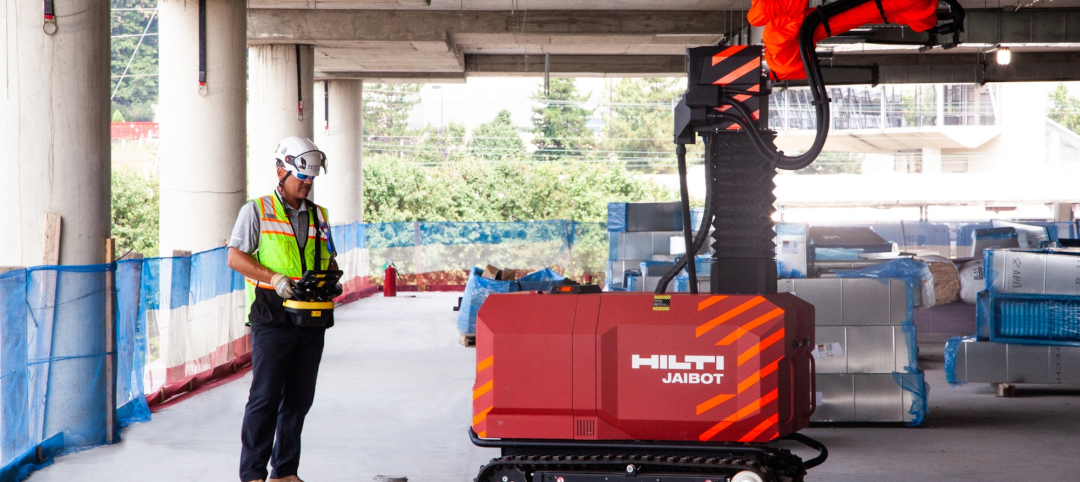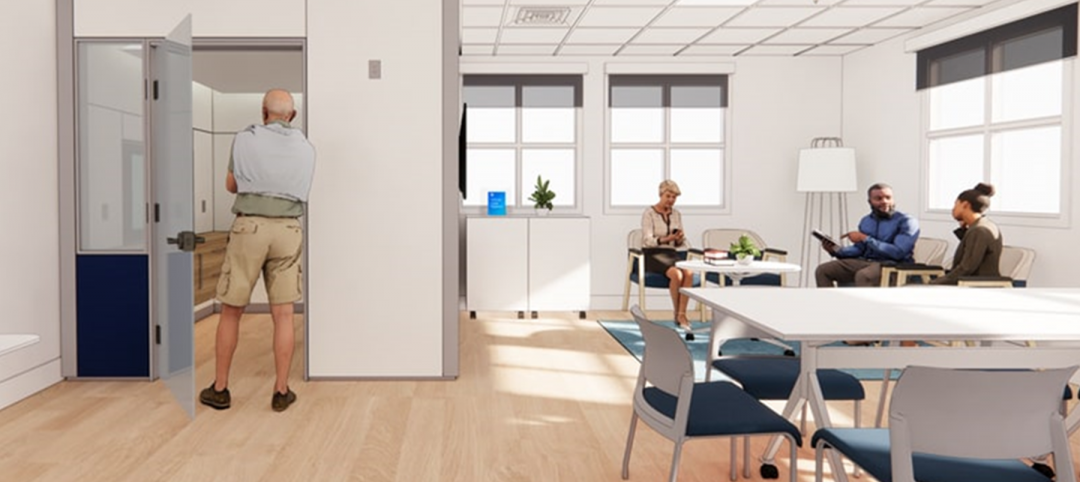The International Code Council surveyed building and fire departments to learn how code officials are coping with the professional challenges brought on by the COVID-19 pandemic. From March 22 through April 1, 2020, more than 1,150 respondents from all 50 U.S. states and the District of Columbia provided input. Respondents came from jurisdictions of all sizes ranging from 1,000 people to over 4.6 million.
The survey collects trends, ideas, solutions and best practices from code officials about how they are keeping up with new building permits and new construction during the pandemic months.
Although the U.S. Department of Homeland Security has determined the work of building and fire prevention departments to be essential to the nation’s response to the coronavirus pandemic—and no state has made a contrary determination—6 in 10 survey respondents did not have the capability to remotely carry out critical aspects of their work. With many departments already under resourced and many state and local governments facing severe revenue downturns resulting from the coronavirus pandemic, it is critical that federal coronavirus response funding be directed to building and fire prevention departments that need it to continue their essential functions. Such investments would speed the restart of our economy and produce lasting reductions in departmental operation costs and permitting timelines.
The recently passed Coronavirus Aid, Relief, and. Economic Security Act (CARES Act, H.R. 748), provides state, local, tribal, and territorial (SLTT) governments with $150 billion through a Coronavirus Relief Fund (CRF) for necessary spending in response to this public health emergency, $45.4 billion through FEMA’s Disaster Relief Fund (DRF), and $5 billion through the Community Development Block Grant (CDBG) program. Funding that enables code departments to work remotely should be an eligible activity under the CRF, and both the DRF and CDBG program have funded code enforcement activities previously. The Code Council has also urged the U.S. Congress to allocate support specifically for code department remote capabilities as part of a fourth coronavirus response measure Congress is currently considering.
The main survey findings are:
- The majority of departments surveyed (93%) are still performing inspections, either remotely or in-person. This falls in line with what the Code Council expected given that many areas have classified construction and code compliance activities as essential.
- More than half (65%) of respondents said that some or all employees that conduct plan review or inspections are working remotely.
- A large percentage of jurisdictions (66%) use a combination of electronic and hard copy versions of building safety codes, while a much smaller percentage of jurisdictions (7%) have advanced to using all electronic. 27% of respondents said their jurisdiction used only hard copies. This could create challenges where hard copies are shared and departments do not have enough hard copies for each now-remote employee that needs them. In fact, 23% said their employees do not have access to needed hard copy code books.
-
Many jurisdictions have made the switch to electronic services, but a large percentage still do not have the capacity to go virtual. In particular:
- 40% do not have the capability to do electronic/remote plan reviews.
- 30% do not have the capability to do any aspect of electronic/remote permitting.
- 61% do not have the capability for electronic/remote inspections.
- To expand services to fight the coronavirus pandemic, many healthcare facilities are putting beds in alternative locations (like school gymnasiums, hotels, outpatient surgical centers) or in temporary structures in their parking lots. 26% of respondents have encountered requests for permits for temporary occupancy and/or temporary structures as a result of the COVID-19 pandemic.
“The results of this survey show how quickly and efficiently many Code Council governmental members have moved from office work to telework and have adapted to a new virtual work environment,” said Code Council Chief Executive Officer Dominic Sims, CBO. “Now more than ever, we are reminded of the importance of building safety. Throughout this crisis, the Code Council will remain committed to its mission to advocate for building safety professionals around the world and identify new ways to contribute to public safety.”
“Code officials are essential to keeping our communities safe and protected. Especially during these difficult times when we find our greatest protection from remaining inside, their continued service to ensure building and public safety is critical,” said Code Council Senior Vice President of Government Relations Sara Yerkes. “We commend the offices across the nation that have virtually reframed their operations and we urge Congress, states and local governments to recognize the need for an allocation of resources directed to building departments to continue the important work of ensuring new construction and remodeling projects meet fundamental safety standards.”
This survey is ongoing, and the Code Council will continue to collect responses to these important questions. Forthcoming will be a document outlining best practices on virtual code compliance activities.
View the survey report and infographic.
Related Stories
Augmented Reality | Jan 27, 2023
Enhancing our M.O.O.D. through augmented reality therapy rooms
Perkins Eastman’s M.O.O.D. Space aims to make mental healthcare more accessible—and mental health more achievable.
K-12 Schools | Nov 30, 2022
School districts are prioritizing federal funds for air filtration, HVAC upgrades
U.S. school districts are widely planning to use funds from last year’s American Rescue Plan (ARP) to upgrade or improve air filtration and heating/cooling systems, according to a report from the Center for Green Schools at the U.S. Green Building Council. The report, “School Facilities Funding in the Pandemic,” says air filtration and HVAC upgrades are the top facility improvement choice for the 5,004 school districts included in the analysis.
Giants 400 | Nov 14, 2022
4 emerging trends from BD+C's 2022 Giants 400 Report
Regenerative design, cognitive health, and jobsite robotics highlight the top trends from the 519 design and construction firms that participated in BD+C's 2022 Giants 400 Report.
Healthcare Facilities | Jun 20, 2022
Is telehealth finally mainstream?
After more than a century of development, telehealth has become a standard alternative for many types of care.
Coronavirus | May 20, 2022
Center for Green Schools says U.S. schools need more support to fight COVID-19
The Center for Green Schools at the U.S. Green Building Council released a new report detailing how school districts around the country have managed air quality within their buildings during the second year of the COVID-19 pandemic.
Industry Research | Mar 9, 2022
Survey reveals five ways COVID-19 changed Americans’ impressions of public restrooms and facilities
Upon entering the third year of the pandemic, Americans are not only more sensitive to germs in public restrooms, they now hold higher standards for the cleanliness, condition and technology used in these shared spaces, according to the annual Healthy Handwashing Survey™ from Bradley Corporation conducted in January.
Codes and Standards | Feb 21, 2022
New standard for ultraviolet germicidal irradiation
The Illuminating Engineering Society (IES) recently introduced the standard, ANSI/IES RP-44-21 Recommended Practice: Ultraviolet Germicidal Irradiation.
Coronavirus | Jan 20, 2022
Advances and challenges in improving indoor air quality in commercial buildings
Michael Dreidger, CEO of IAQ tech startup Airsset speaks with BD+C's John Caulfield about how building owners and property managers can improve their buildings' air quality.
Coronavirus | Jul 20, 2021
5 leadership lessons for a post-pandemic world from Shawmut CEO Les Hiscoe
Les Hiscoe, PE, CEO of Shawmut, a $1.5 billion construction management company headquartered in Boston, offers a 5-point plan for dealing with the Covid pandemic.
Resiliency | Jul 15, 2021
A new report urges federal investment in healthier buildings
The National Institute of Building Sciences also calls for code changes and greater cooperation between building owners and the AEC community.

















